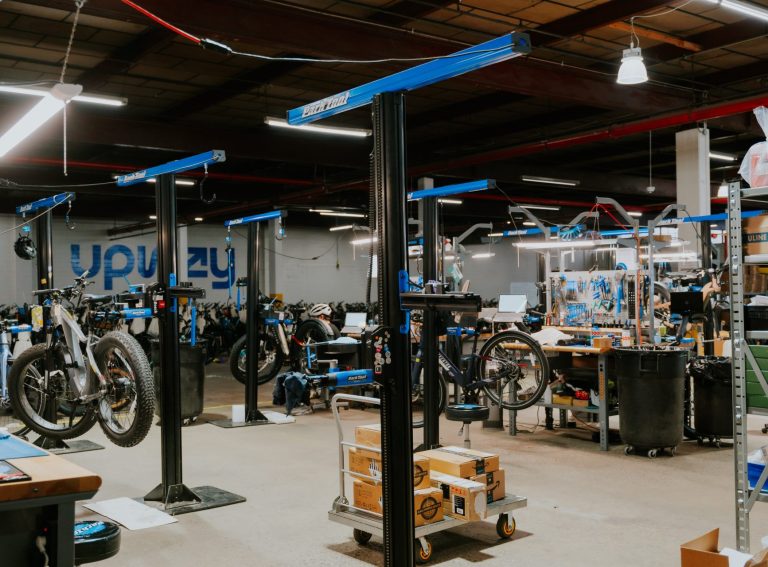London is in the midst of a cycling revolution.
With a Cycleway network that’s surpassed 400 kilometres, the capital city now boasts bike lanes that are officially longer than the London Underground.
Zag turns to London’s Walking and Cycling Commissioner Will Norman to hear where the capital’s cycling future is headed under his leadership.
Zag Daily: The number of cycling deaths dropped 40% in London in 2023 compared with the 2010-14 baseline, despite cycle journeys increasing. What has been the biggest driver of this reduction?
Will Norman: “There is no single driver of this. The changes in London have been very clear thanks to the Mayor of London, Sadiq Khan’s, political commitment from the outset. I refer to his Healthy Streets approach and his Vision Zero goal of eliminating deaths and serious injuries on London’s roads by 2041. That was a 25-year project when we set out on it which is ambitious given the scale and complexity of London. What has made the difference in London is the fact that Vision Zero is a system change. It’s a series of changes that need to happen.”
Zag Daily: What are those necessary changes?
Will Norman: “Firstly, the creation of safer streets. That means the bike lanes, the dangerous junctions, new crossings, low traffic neighbourhoods and school streets – the actual physical changes happening on the ground including the massive expansion of the cycle network. The second piece is safer speeds. How do we make speeds safer in London? We know that if you’re hit by someone doing 30 mph you’re five times more likely to get killed than if you’re hit by someone doing 20 mph. We’ve been working with London’s boroughs to bring in these changes, and 52% of London’s roads are now 20mph. On TfL’s roads this has resulted in a 25% drop in fatalities and a 63% fall in collisions with pedestrians.
“Then there are safer vehicles. Every time we buy a new bus at TfL, they have to follow a certain standard which includes speed limits, the kinds of mirrors they need and other interventions. Our Direct Vision Standard (DVS) for lorries looks at the issue of blind spots and where drivers can’t see cyclists and pedestrians around them. This has seen over a 60% fall in fatalities relating to HGVs. Finally, there’s safer behaviour. Our partnership with the Met Police continues to effectively enforce penalty charge notices so that bad behaviour is penalised. We’ve boosted the capacity within the Met to do that and we’re encouraging safer behaviour through education and training. So there isn’t a single thing I can point to that’s led to this reduction in road fatalities, and I don’t think anyone else should point to just one either. It’s all part of these areas: safer streets, safer speeds, safer vehicles and safer behaviours.”
Zag Daily: Those are encouraging findings. However, vulnerable road users (people walking, cycling and motorcycling) still make up 80% of people killed or seriously injured on London’s roads. How are you and the Mayor tackling this?
Will Norman: “There is absolutely zero complacency here. Last year, 95 people were killed on London’s roads and over 3,500 seriously injured. Some of those injuries are life changing. The other week I was at a memorial service that RoadPeace organised for victims of road collisions and it’s heartbreaking to speak to the families of victims of those experiences.
“I think we have made significant achievements, particularly in the national picture, but there’s an awful lot more to do. We’re continuing to roll out the cycle network and invest in addressing dangerous junctions. Lambeth Bridge for example had one of the most historically dangerous junctions for cyclists in the city caused by two roundabouts. One of those roundabouts has been removed and the other is being removed. We’re working with boroughs and have launched a new investment program looking into road safety, which will equip them with the finance to tackle some of the most dangerous junctions in the city. There’s a lot that’s happening and it’s both exciting and urgently needed. Road safety for all users, and especially vulnerable users, is an absolute priority for the Mayor, for TfL and for London boroughs. It’s great to see the changes happening – it’s just frustrating that they can’t happen faster.”
Zag Daily: London’s Cycleway network has more than quadrupled since 2016. However one industry concern is that there are black holes in the network. How are you prioritising these holes?
Will Norman: “We’ve made progress on this but it’s only the start. When I came into office, we set out a Strategic Cycling Analysis which showed the connections we need our cycle network to offer. It’s not just for Central London, which has historically been the focus, but it’s expanded to both inner and outer London and we’re seeing increasing cycle journeys across the whole city.
“New boroughs are getting involved and areas like Enfield have done a brilliant job. There are boroughs who have never had bike lanes but in the next twelve months are looking to install cycle networks. That is thanks to campaigning communities and politicians recognising the importance that outer London is part of the puzzle. But clearly we have a long way to go and whoever said it is absolutely right – there are still holes in the network. One of the obvious ones is Kensington and Chelsea, and we’ve got a fantastic route that goes from Westminster through to Hammersmith and Fulham and through to Hounslow. Focusing on boroughs that are not yet delivering is a priority because a network is only as good as its weakest spot.”
Zag Daily: How much investment is Transport for London putting into its Cycleways?
Will Norman: “We’ve committed to investing £150 million a year into our Healthy Streets programme under TfL’s current business plan. That’s not just Cycleways, but crossings and junctions and the other measures we’ve discussed too. There’s been sustained investment in active travel since Sadiq came into power and it’s political commitment that secures that financial commitment. This dedication moves forward irrespective of some really hard financial challenges facing the city and the transport network.”
Zag Daily: TfL recently announced a new enforcement plan to take action against shared micromobility operators that don’t ensure their bikes are parked responsibly. Why was this decision made?
Will Norman: “Let’s be really clear on this. Dockless bikes are increasingly popular and a great way of getting people around the city. They’re green, clean and healthy. The biggest problem we face is irresponsible parking. Large numbers of bikes abandoned or parked on pavements cause significant safety concerns for people who have disabilities, older people, people in wheelchairs and people with pushchairs, and you can often see people stepping on and off of the road to avoid these bikes. So there’s a really clear need to address this dangerous parking.”
Zag Daily: Can you tell us more about what this plan includes?
Will Norman: “There are three basic aspects to our approach. One of them is increasing investment, and we’ve invested £1 million into more designated parking bays rather than having bikes scattered all over the pavement. The second piece is working with operators to do everything they can to get people to adhere to responsible parking and using those bays. And third is a new approach to enforcement on TfL roads.
“As I said, we’re aiming to tackle the bikes that are creating danger for pedestrians, and this enforcement could include fining operators, the removal of bikes, and ultimately prosecution. We don’t want to get there. Essentially, we want to create a system where the operators can enforce responsible parking through their own mechanisms. If you look at e-scooter data, where e-scooters are operating under a regulatory framework as part of national trials, you see 95% parking compliance. We want to take this concept from e-scooters and apply it in London for bikes. This isn’t just a London issue – it’s a nationwide issue and we’re talking to the government about giving cities the power to regulate the system more broadly, which is ultimately where we’ll get the success on this.”
Zag Daily: One response from the industry is that this could be an attack on operators. How would you respond?
Will Norman: “We estimate that the fleet size of bikes in London has doubled in the last 12 months. We have to take some action here. Operators are well aware of the challenges with their own models. We want to work with them and all of London’s boroughs to improve the model so that people can access these vehicles easily and to ensure the vehicles are also parked safely.”
Zag Daily: Moving away from bikes, the former Transport Secretary Louise Haigh has more than once indicated e-scooters will be legalised. What’s your take?
Will Norman: “This is one of those areas where technology has advanced but the law hasn’t, and you can see the problems that have arisen out of that. In London, we’ve trialled rental e-scooters for some time and they’ve shown the role they can play in transport and that they can be operated safely. Where there hasn’t been that regulatory framework is the private e-scooter market. You can buy an e-scooter online but a lot of people don’t know that it’s not actually legal to use them on the road so the issue is that they’re being ridden illegally.
“Secondly, there’s a problem with the safety standards of these vehicles. Some of them can do up to 50mph. Now we can’t uninvent e-scooters – they’re here to stay. But this is where it’s important for government legislation to ensure they’re used safely not only for other road users who don’t want an e-scooter zooming past them at 50mph, but for the e-scooter riders too.”
Zag Daily: What’s been the sustainable transport policy you’ve worked on that’s generated the greatest backlash?
Will Norman: “Certainly ULEZ. The expansion of ULEZ in particular caused one of the biggest backlashes. But many schemes face backlash and to me that shows the value that people place on their journeys. Journeys come with a sense of belonging – it’s my journey whether it’s a journey to work or a journey home to see your kids. So changing that can be challenging. But I think ULEZ is a really good example of a bold policy that had clear ambitions, and the results speak for themselves. The fact that London is going to get to legal air standards 184 years earlier than without ULEZ demonstrates that these interventions are working and they will save lives.”
Zag Daily: If you had a magic wand, what’s a key transport policy you’d implement in London today?
Will Norman: “Well, because it’s magic I’d make three wishes. First, I would have nobody killed or seriously injured on our roads because safety is one of the biggest barriers to active travel. Second, I would have a safe cycling network that spans the whole city with parking fully integrated. Third, free public transport for everyone.”





